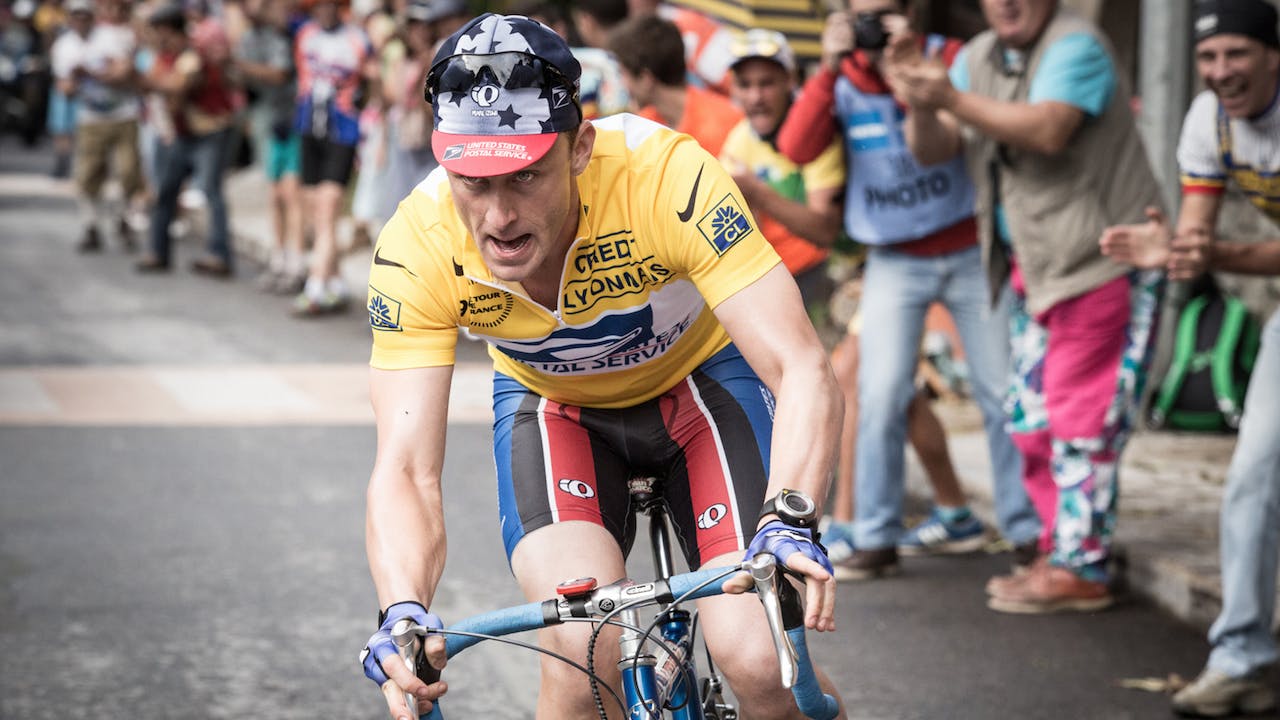
In a recent interview that has stirred both intrigue and scepticism within the cycling community, Lance Armstrong, the once-revered and now-controversial figure in professional cycling, offered a piece of advice that resonates deeply with athletes across all sports: “Never take counsel from fear.” This statement, while seemingly straightforward, opens Pandora’s box of discussions regarding ambition, risk-taking, and the complex landscape of competitive cycling. As Armstrong reflects on his tumultuous career, his insights prompt a closer examination of what it means to pursue greatness in a sport that has been marred by scandal and controversy.
The Context of Fear in Competitive Sports
Fear is an inherent part of any competitive environment. Athletes often grapple with the fear of failure, injury, or not living up to expectations. For many, this fear can be paralysing, leading to hesitation and second-guessing decisions that could define their careers. Armstrong’s advice serves as a reminder that while fear is natural, it should not dictate one’s choices or ambitions.
In cycling, where the margins between victory and defeat can be razor-thin, the pressure to perform can lead riders to make decisions based on fear rather than strategy or instinct. This is particularly relevant in an era where performance-enhancing drugs have tainted the sport’s reputation. Armstrong himself knows this all too well; his own career was overshadowed by doping allegations that ultimately led to his downfall.
Armstrong’s Fall from Grace
Lance Armstrong’s journey from a celebrated athlete to a figure of controversy is well-documented. After winning seven consecutive Tour de France titles from 1999 to 2005, he became a symbol of resilience and triumph over adversity—having survived testicular cancer before his historic comeback. However, the revelations about his extensive use of performance-enhancing drugs shattered that image and resulted in a lifetime ban from competitive cycling.
The irony is not lost on many when Armstrong offers advice on fear. His own career was marked by decisions made in pursuit of success at any cost, leading him down a path of deception that ultimately cost him everything. In light of this history, critics argue that his counsel may carry less weight given his past actions.
The Dichotomy of Fear and Ambition
While Armstrong’s statement encourages athletes to rise above fear, it also raises questions about ambition and the lengths to which individuals will go to achieve their goals. In competitive cycling, where the stakes are high and the competition fierce, ambition can sometimes blur ethical lines.
Athletes often find themselves at a crossroads: do they adhere strictly to the rules and risk falling behind their competitors? Or do they take risks—sometimes unethical ones—to secure their place at the top? This dilemma is particularly pronounced in cycling, where doping scandals have led many to question the integrity of those who succeed.
Armstrong’s advice can be interpreted as a call for athletes to embrace their ambitions without succumbing to fear-driven decisions. However, it also serves as a cautionary tale about how unchecked ambition can lead to destructive choices.
The Current Landscape of Cycling
Today’s cycling world is grappling with its own set of challenges. The sport has made strides towards greater transparency and integrity since Armstrong’s fall from grace. Organisations like the World Anti-Doping Agency (WADA) have implemented stricter regulations and testing protocols aimed at restoring faith in competitive cycling.
However, issues remain. The shadow of doping still looms large over the sport, with new substances emerging that challenge anti-doping efforts. As athletes navigate this complex landscape, Armstrong’s advice becomes increasingly relevant: they must learn to trust their instincts and not let fear dictate their actions.
For young cyclists entering the sport today, understanding how to balance ambition with ethical considerations is crucial. They must learn from past mistakes—not only those made by Armstrong but also by others who have faced similar dilemmas.
The Role of Mentorship
Armstrong’s comments also highlight the importance of mentorship in sports. Young athletes often look up to established figures for guidance; however, not all mentors embody the values they wish to instill. In this context, Armstrong’s advice serves as both inspiration and warning.
While he encourages athletes to push through fear and pursue their dreams relentlessly, young cyclists need to seek out mentors who prioritise integrity alongside ambition. The cycling community must foster an environment where ethical behaviour is celebrated as much as competitive success.
A Changing Narrative
As discussions around Armstrong continue to evolve, so too does the narrative surrounding his legacy. While he remains a polarizing figure—viewed by some as a cautionary tale and by others as an enduring symbol of resilience—his insights into fear and ambition resonate widely.
Athletes today face unprecedented pressures in their pursuit of excellence. Social media scrutiny, intense competition, and commercial interests create an environment where fear can easily take root. In this context, Armstrong’s message becomes even more poignant: athletes must learn to confront their fears head-on while remaining true to themselves.
Embracing Fear as Fuel
Lance Armstrong’s assertion that one should “never take counsel from fear” serves as both a powerful mantra for aspiring athletes and a reminder of the complexities inherent in competitive sports. While fear is an unavoidable aspect of any athlete’s journey, it should not dictate choices or stifle ambition.
As cycling continues its quest for redemption following years of scandal and controversy, embracing this philosophy could pave the way for a new generation of riders committed to ethical competition. By learning from past mistakes—both their own and those made by others—athletes can navigate their paths with integrity while pursuing greatness on their terms.
In summary, while Lance Armstrong’s past may cast shadows over his words today, his insights into fear resonate deeply within the broader context of competitive sports. Athletes must strive for excellence without compromising their values—a lesson that transcends cycling and speaks volumes about human ambition itself.
Leave a Reply